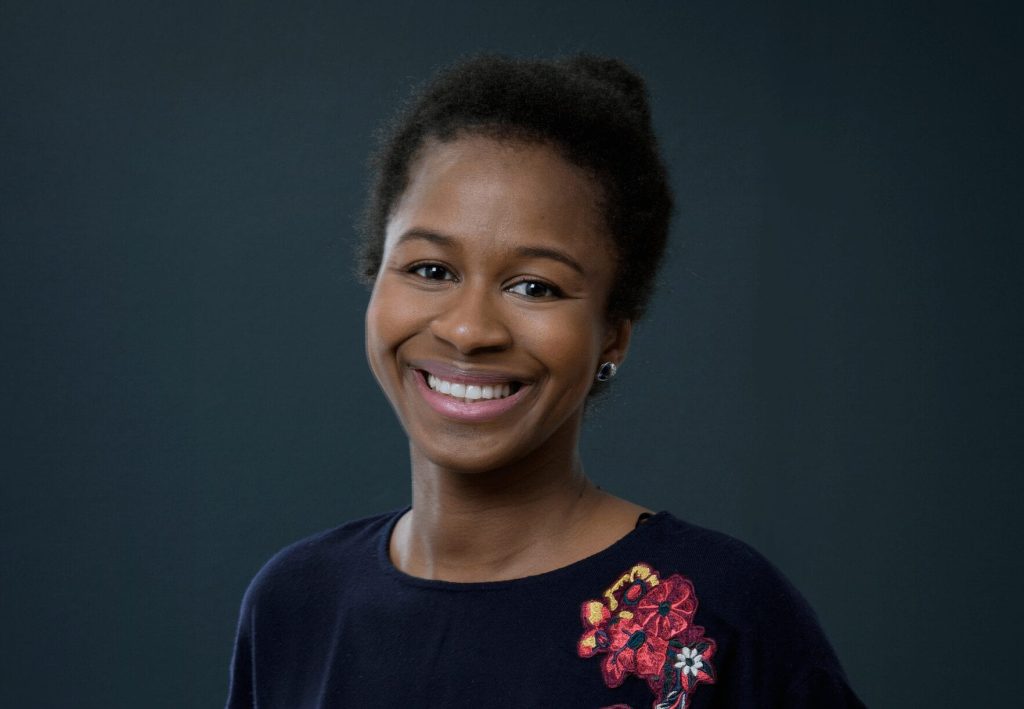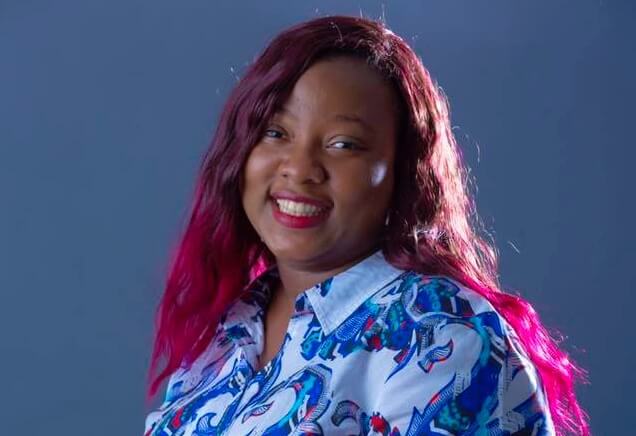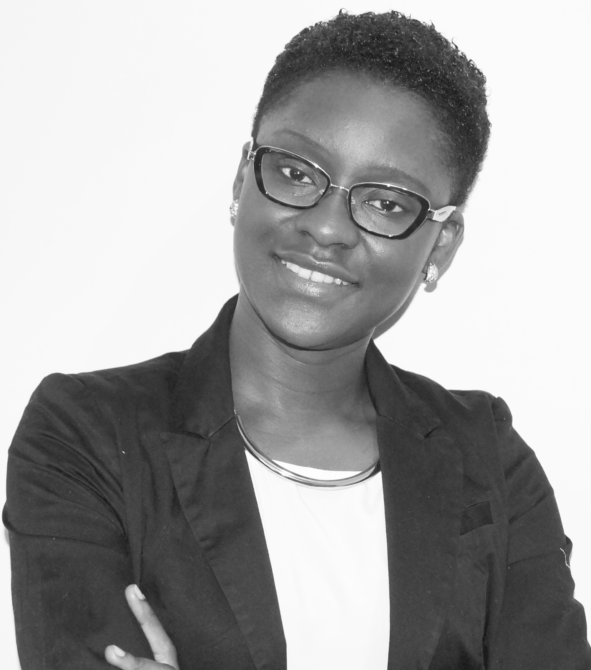Assia Sidibe: I am building a better Africa for myself and my daughters

[bctt tweet=”Your first husband is your job. It is important to be independent – Assia Sidibe” username=”SheLeadsAfrica”] At only 32 years old, Assia Sidibe heads the pool of Francophone countries for the African Risk Capacity (ARC) – a specialized institution of the African Union that insures African countries against the risks of extreme weather events. Assia is from the beautiful land of Mali; she grew up in Côte d’Ivoire but had to leave this second home 16 years later, after a coup in the country, for France, where she lived for a decade. In this interview that took place on a plane, 3 hours away from a Madagascar business trip, SLA contributor Meguy Massoudi attempts to capture just what a trailblazer Assia is. Assia did a great job at answering with candor and a lot of humor. What did you want to be when you grew up? Why? I have no idea. I was not one of those people that knew what they wanted to do. All I knew is that I wanted to work in development and help people. Growing up in Côte d’Ivoire, I could sense the inequalities in society. I wanted to help people that were less fortunate than I was, just not in a charity sort of way. That idea only became concrete when I was around 18 or 19. How did you decide that finance was the route you would take for your studies and later your career? When I was supposed to decide what to study, I had no idea what to do. My parents pushed this idea that finance was the best place to start on me. They believed that it opened a career in everything. So I studied finance in high school. After my Baccalaureate, I did a PREPA (preparatory school) in Superior Classical Letters. I was curious about learning about history, languages, and philosophy. After that, I knew what I wanted to do. So I did a Master’s degree at Science PO Paris in Finance and Strategy. And from then, it opened up a career in development very easily. Have you ever done any volunteer work? If yes, how has it been important to you? If not, would you be interested in volunteer work? When I arrived in South Africa, I gave contemporary dance lessons to teenagers in the Joburg CBD. I wanted to give back to the community. I wish I could volunteer more. If I had more time I would. Have you ever faced problems in the workplace because you are a woman, how have you dealt with them? No. I have faced problems in the workplace more because I am young. Working with African governments however, it has not been as difficult. Being a woman can be challenging, but if the work relationships are based on mutual respect, that is good. [bctt tweet=”Assia Sidibe: I have faced problems in the workplace more because I am young” username=”SheLeadsAfrica”] I have been pleasantly surprised by the open-mindedness of senior government officials who are willing to work with women of every age, especially in West Africa. Africans are not as closed minded as we are often made up to believe. You have a career that allows you to surpass yourself every day, and meet the game shakers in climate change and in governments. How do you find the confidence to talk to so many high profile people and get them to align with your vision and participate in your work? I am not at all impressed by high-rank people. At the end of the day, we are all working for the continent. I don’t scare easily or get impressed easily. That doesn’t mean I don’t respect them. I also think it is important to share our different views with one another, Minister or not. You would be surprised how friendly and open-minded people on the continent are. Was there a time you messed up and felt like you failed? What did you do to recover? I wouldn’t say messed up. But last year, one of my countries didn’t get on board with ARC. I didn’t feel like I failed because I was on maternity leave. But I felt guilty. It’s a woman thing. When I had to travel after giving birth and leave a little baby, I also felt guilty. I always leave thinking to myself, did I make the right choice? But I wouldn’t be happy staying at home. I tell myself, I am building a better Africa for myself and my daughters. And If I can make that impact, then that’s good. What keeps you going in the most stressful times? The belief in the potential of our continent keeps me going. I believe in what I do. I admit to being a bit of an idealist. But the bottom line is believing in what I do. I meet exceptional civil servants who work in hard situations but they never give up. In hard times, these people inspire me and keep me going. [bctt tweet=”The belief in the potential of our continent keeps me going – Assia Sidibe” username=”SheLeadsAfrica”] When we talk about the continent, we don’t talk enough about those that do everything in their power to make Africa better. We only talk about those that are corrupted. What are your success habits? My success habit would be never giving up. But I wonder if I even really have success habits. I am just a person who never gives up. It’s in my personality. Nothing is impossible. So my success habit would be to explore a hundred ways to solve a problem before giving up, in every single thing I do. What advice do you have for women wanting to make advancements or drastic changes in their careers? I will start by addressing the point about drastic career changes. Speaking from experience, I resigned from my job in France. You have to find the courage to do it. When you want to do something, do it. For
Aida Bamba: The gourmet in the city

[bctt tweet=”What makes Serial Foodie unique is me and my pen – Aida Bamba” username=”SheLeadsAfrica”] Ever heard of the saying that the period after a break up is your most creative? Aida Bamba started blogging in July 2015 after breaking up with her then boyfriend. Aida had put a pause to her passion for writing for her ex but then after the break-up decided not to put the desires of others ahead of hers. Firm in her resolve not to stop herself anymore, Aida Bamba eventually started blogging at Serial Foodie. Serial Foodie explores and reviews restaurants in Abidjan, Ivory Coast. As a foodie with a flair for cooking and an Agro-Food engineer, Aida brings her unique background to food blogging. This lady can tell if you haven’t put enough mint in a mojito. Why did you decide to start Serial Foodie? I decided to launch Serial Foodie in December 2015. I started my blog on advice from Orphelie Thalmas one of the best bloggers in Ivory Coast. She informed me that several people had loved an article I’d written reviewing a restaurant and suggested that I might have to specialise. I had already made a tour of many restaurants at that time. Not to mention, I have a talent for cooking and I’m an Agro-Food engineer by training, therefore have an understanding on a number of processes. I decided it was a good idea to specialise in food blogging and that I was going to follow Orphelie’s advice. Together, we chose the name of the blog, Serial Foodie and the slogan, “A gourmet in the city”. And that’s how Serial Foodie was born. You started blogging after a break up, can you tell us about that? I have always had complex emotional relationships. I have too many things to think about, there are many things in mind that I would like to achieve. This often disconnects me from reality. When you’re in a relationship, it is not obvious. In that relationship, I wanted to give the maximum and that lead to sacrificing myself. I put my passion for writing on hold. Unfortunately, my sacrifices did not lead to anything and we parted ways. What do you think makes Serial Foodie unique? What makes Serial Foodie unique is me and my pen. My way of transcribing the experiences lived in restaurants is my own. For me, to describe an experience in a restaurant is not limited to just saying; “I went here, I tasted these dishes, I liked it or not, the price ranges are, the place is located here and the number is…” For me, what counts is reception. How did I get to this restaurant? Do I like its decoration and ambience? What of the hygienic aspect? Then, my special feature is to focus on the dish. To give information on the components that I perceive; the recipes, the good flavours, the bad flavours. I will know for example if a cocktail lacks an ingredient or if a step has been missed. This is what I propose to those who read my blog; a unique experience that until now has only been offered by me. Abidjan has the reputation of being very cosmopolitan, what’s the foodie scene like there? Since the end of the crisis, the city of Abidjan has seen an increase in the number of restaurants. These restaurants cover all edges and are diverse. From Asian specialities to local cuisines, the foodie scene is moving and well. What do you do outside blogging? Apart from being a blogger, I’m an assistant at Instant2Vie, a photo studio. I’m also a social media manager. I manage brand image, from person to enterprise. I am freelance and work from my home; it’s not easy but I love this! I entered into the world of freelancing through my blog but I’m also an Agro-Food engineer as I mentioned above. [bctt tweet=”I will know if a cocktail lacks an ingredient or if a step has been missed – Aida Bamba” username=”SheLeadsAfrica”] You’re also a writer with a published novel, can you tell us more about this? I wrote my first non-fiction book in 2005. The title is, “Les Revers de la Vie” or “The Reversal of Life”. To be honest, the publishing house has never paid me my rights even though the book is still on sale. I decided to overcome this disappointment on my own and come out anew after the loss of my father last April. “The Reversal of Life” is available on Amazon Kindle. #love #instagood #follow #followme #foodie #picoftheday #abidjan #food #france #blog #blogger #foodblog #foodblogger #serialfoodie #follow4follow #followforfollow #followback A photo posted by Bamba Aida (@serialfoodie) on Oct 24, 2016 at 3:11pm PDT Breakfast, brunch, lunch and dinner in Abidjan, where would you recommend people reading this go? My suggestions for Abidjan are: Breakfast: Pause Café, Nougatine, Comptoir des Artisans, Bao Café, Couleur Café, Flow. Brunch: Flow, Nougatine, Norima, Pause Café, Radisson Blu Lunch: Le Kallisté, le Rallye, Salad and Sun, La Maison des Combattants, Norima, Le Bao, Le Comptoir des Artisans, Dinner: Wasabi, Oishi, Kanpai, Kallisté, Don Antonio, Hippopothamus, Norima, Mondial, Saakan, Chez Jay’s. If I were to choose one restaurant, it’ll be Norima Restaurant Vallon. My menu options are; mini cowboy burger and buffalo chicken wings for starters. The Mongolian beef rice bowl for main and kiwi mojito or pina colada for drinks! If you’d like to share your story with She Leads Africa, let us know more about you and your story here.
Peggy Ballou: Young women should create vision in their career

Sometimes, busy professionals need specialised one-on-one training to boost their businesses. That’s where the boutique coaching comes in. Boutique coaching is the art of discovering the best in people and getting them to utilise it. In Ivory Coast, Peggy Ballou is at the forefront of talent management and human capital. She is the founder of Social Achievers, a non-profit organization which aims to develop personal and professional skills in high school students in Ivory Coast. Peggy spoke to SLA about young women creating vision in their career while sharing top tips on improving career skills. What does it take to run a boutique coaching and human capital firm? Running a boutique coaching and human capital firm in Ivory Coast is a challenging experience. Especially when only a few have basic knowledge of the services you offer. A boutique firm is one of a small size and/or narrow line of service. In our case, we specialize in career coaching for professionals in their mid-career, on one hand. On the other end, we help SMEs strategically plan and manage their human resources. Our ultimate goal is to provide advisory services on the strategic function of HR as opposed to the traditional view of staff and payroll administration most business owners have. Managing a business of this sort requires experience, innovation, perseverance and excellent communication skills. I personally work from home and my team consists of a virtual assistant and a community manager. Sometimes, I work in a client’s office with other independent consultants. The biggest challenge is to get the first clients, especially corporate ones. I spend most my time educating and nurturing the prospects on the importance of our services to improve the results and performance of their staff. I do this by networking, writing articles in HR Magazines and doing public speaking. How have you sustained your business through the years? I have been in business since September 2013. I started while I was still living in Canada. I was running it in parallel with my corporate job, at nights and during weekends. I a humble beginning, and in 2015, I took a leap of faith, quitting my job. I went back to school to obtain my coaching certification and started working on my business full-time. I am still at the beginning of my entrepreneurial journey and still have a lot to learn. However, I have personally grown considerably over the past few years and learnt a lot on the do’s and don’ts in the process. For 2016, my main focus is to systematize and streamline my business in order to scale it and make it sustainable. What is your model for human capital development? I see the human capital (talent) management as a 360° integrated process as the image below: Very often, organizations, especially SMEs, don’t strategically plan and align their staff with the business objectives. They place less emphasis on employees development. We are here to help in different aspects of the human capital management from the workforce planning to the talent acquisition; from training and development to succession planning. Our vision is to make human capital the most important asset of organizations by maximizing the potential of each individual contribution in meeting the business objectives. Why is human capital the heart of a business? How can young entrepreneurs leverage human capital? Human capital is the set of knowledge, experience, and talent that people have and can benefit an organization. As entrepreneurs, we know how important it is to hire the best employees and put the right persons in the right position. When starting out, entrepreneurs don’t have enough resources to invest in the human capital. But they could leverage human capital by identifying and selecting staff according to the potential and natural talents of each person. They don’t need to rely solely on just past experience. To attract the best people, young entrepreneurs should think of career development and advancement opportunities in their companies. It’s also recommended to invest 1% of the revenues in staff training and development. That investment will improve the overall performance of the organization. How can young women improve on their productivity at work? For me, productivity is the ability to produce the best result possible in the shortest amount of time. As young women, we often have to balance work with family duties. Hence, it’s important that we are organized and focused on productivity. At work, it’s crucial to identify what are the main priorities and focus on what matters the most. It takes discipline and dedication. Productivity also implies systematization. Whenever possible, young women should create systems in their work and personal life (checklists, templates, various spreadsheets, automated email responses, menus, pre-made grocery lists etc.) and establish routines. Finally, it’s important to note that motivation is a driver of productivity so young women should find purpose. They should create a vision in their career and life to stay motivated and keep their productivity level at his best. If you weren’t in your current profession, what would you be doing? I would be a diplomat or an ambassador! Did you enjoy this article? Sign-up for our newsletter to get even more amazing content directly in your inbox. Click here.
